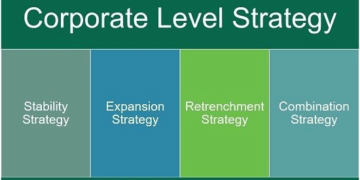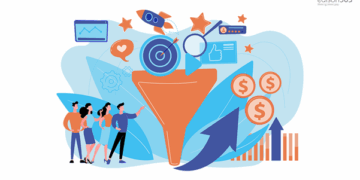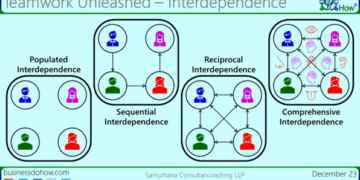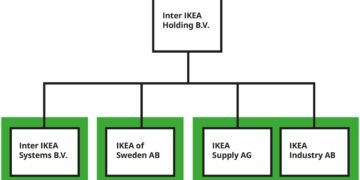
Every day we make countless decisions and choices in our lives that affect the environment, the climate and other species. It’s estimated that the average adult makes more than 35,000 decisions per day from what we eat from where to buy it, what to read, what to wear, where to visit, how many events to attend, what time to go to bed……the list is big. While making decisions we can reduce our environmental footprint to leave more room for wild animals, birds, sea creatures, flora & fauna.
Limit your shopping
A lot of times people spend over their budget and get into deep financial trouble, spending more than their income. And they don’t regret their decision of unwarranted shopping. They can go all over the mall, and keep shopping. Some people are such addicted buyers that when they go to buy one handbag, they will end up buying 10 handbags and come out of the shop. And some people will spring out and go on buying spree when they are emotionally low; such people are called ’Compulsive Shopaholics’. Reduce, Reuse and Recycle. Every product we purchase has an environmental footprint, from the materials used to create it to the pollution emitted during manufacturing to the packaging that ends up in landfills, so before we buy, we must check ourself if we really need it.

Save water
Water is a precious commodity. Save water as much as you can. In fact, we must start to recycled sewage water and used it for crops. So, even in a rain-deficient year, the crops will survive. Always turn off taps/faucets, invest in low flush toilets, water plants alternate days, invest in high efficiency washing machine, don’t waste too much water to wash your car/vehicle. Rain water harvesting is a must in future. Most importantly, you can save a lot of water by simply taking a bucket bath instead of using shower. Even if your city is not suffering at the moment, the world is at the brink of going dry. Several cities have already run out of water, and many cities and villages have a few days or months of water left. Using a bucket instead of a shower is one of the things that you can do to minimise the utilisation of water.

Drive less, instead use public transport
It reduces congestion in towns and cities. using public transport is cheaper than owning and operating a car. Instead, go for bus priority measures. Usage of too many vehicles only increase it reduces your carbon footprint. Changing your driving habits can dramatically reduce your carbon footprint. Walk, bike, carpool or use public transportation whenever possible.
Use bicycles
Bicycles are widely used for transportation; bicycles have tiny manufacturing footprints compared to other automobiles. Riding a bicycle can improve your mental and physical health and wellbeing. Riding a bike is great exercise and increases cardiovascular fitness. Riding a bike is a great way to visit various places locally. And, maintaining a bicycle is easier.
Say no to plastic
We are literally living in a plastic world. Recent research shows that around 2 million plastic bags are used every minute around the world, with less than 3% being recycled globally. A 2014 UNEP (United Nations Environment Program) report estimates about10 to 20 million tons of plastic finding its way into the world’s oceans each year. Do you know that so much plastic is dumped into the sea each year that it would fill five carrier bags for every foot of coastline on the planet, scientists have warned. Around 8 million tons of plastic bottles, bags, toys and other plastic rubbish ends up in the oceans. Plastic never goes away. Every year thousands of seabirds, sea turtles, seals and other marine mammals are killed after consumption plastic or getting tangled up in it.
Buy Recycled Products
Use reusable bags when you shop, ditch single-use water bottles, bags, and straws and avoid products made from or packaged in plastic whenever possible e.g. select unwrapped produce at the grocery store, shop local, cut down on online shopping. Buy recycled paper, sustainable products like bamboo and straws. Never buy furniture made out of wood from rainforests. Recycle your cell phones, because a lifeless used in cell phones and other electronics is mined in gorilla habitat. Minimize your use of palm oil because forests where tigers live are being cut down to plant palm plantations. Whenever you go grocery shopping make it a point to carry your own bags, even if they are plastic.
Buy forest-friendly products
We must get educated about forests, their importance, and the threats they face. The more we learn about wonderful forest ecosystem, the more we will appreciate critical role played by forests in our planet’s health. Purchase products to prevent deforestation. Agriculture is responsible for 80 percent of deforestation around the world, with mining and logging contributing as well. Beef is by far the worst offender—in addition to driving widespread forest clearing in the tropics, cows contribute heavily to climate change by emitting methane. Avoid buying beef, soy, uncertified palm oil or other products that come from the tropics. Food cooperatives and natural food stores often carry these products. Buy shade-grown coffee, which is grown under the forest canopy rather than on cleared lands.
Buy from local markets
What this means is, instead of heading to the supermarket, buy stuff from the local green grocer, milk man, flower shop, or head to the nearest farmer’s market or mandi where you can get fresh, quality produce and pay much less than how much you would at a shopping mart. You will get the satisfaction of helping some hard-working farmer, you will help some local entrepreneurs to do honest business. By purchasing food and other goods that are produced locally you stimulate the economy in which you live. Jobs are created or retained, the community gains revenue, families and cultures are supported, and local economy thrive and grows.
Reduce wastage of energy
Wastage of energy is another factor that handicaps measures for sustainable living. Avoid too much of usage of electricity. Make use of natural light, opt for LED bulbs instead of CFL. Switch off that light and fan/AC, television, before you leave a room. We can save so much energy if practice shutting down our computers while not in use because computers are the biggest energy users, unplug idle electronics, use a power strip to reduce plug load.
Conclusion
People all over the world which include families, friends, communities and governments need to recognise the threat of natural disasters due to climate changes. We need to make changes before it is too late. Together we need to reduce the use of fossil fuels, stop rainforest destruction and get power from renewable sources by putting pressure on governments or companies to find alternative solutions but also, we need to make changes in our everyday lives.













































